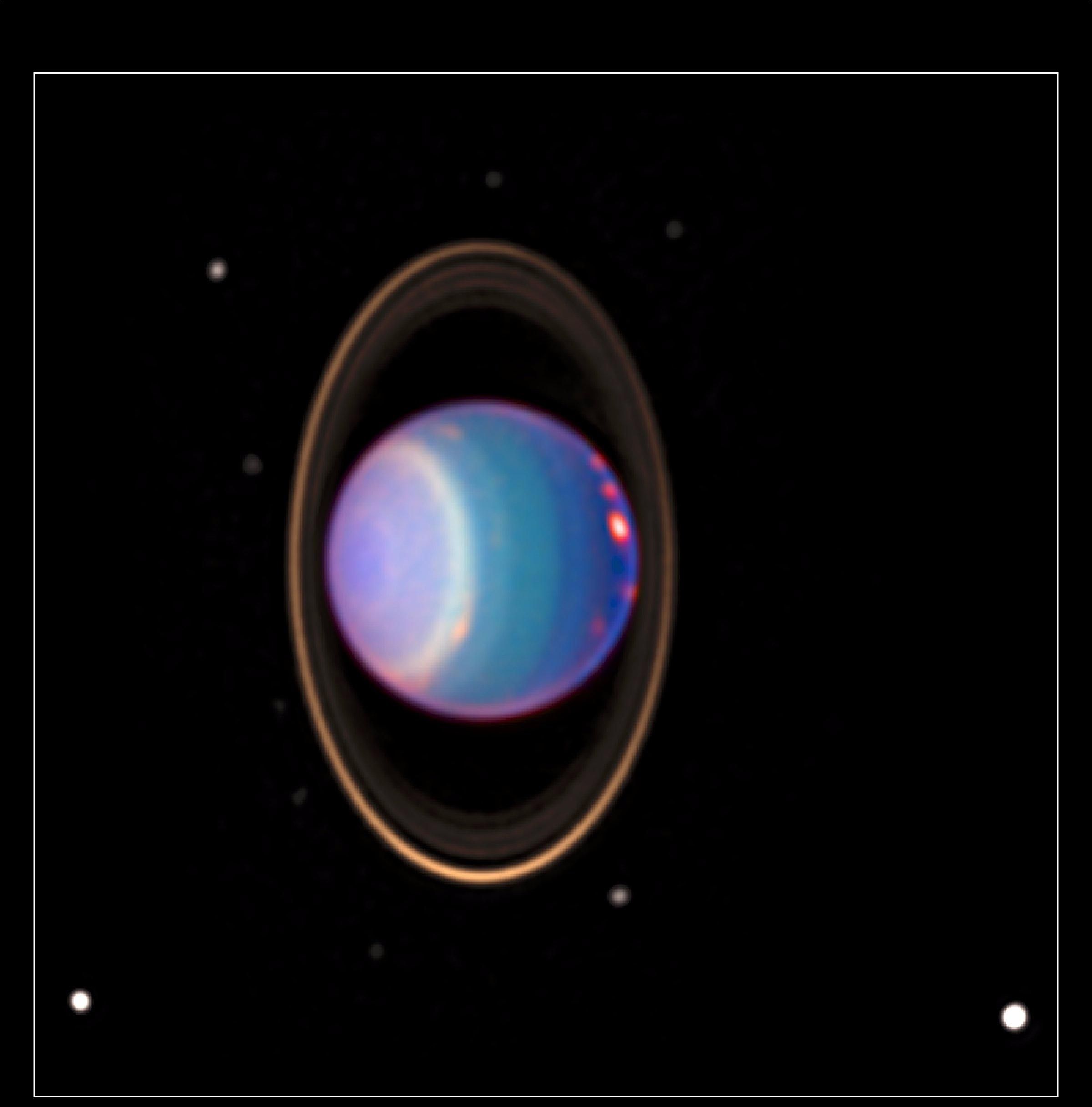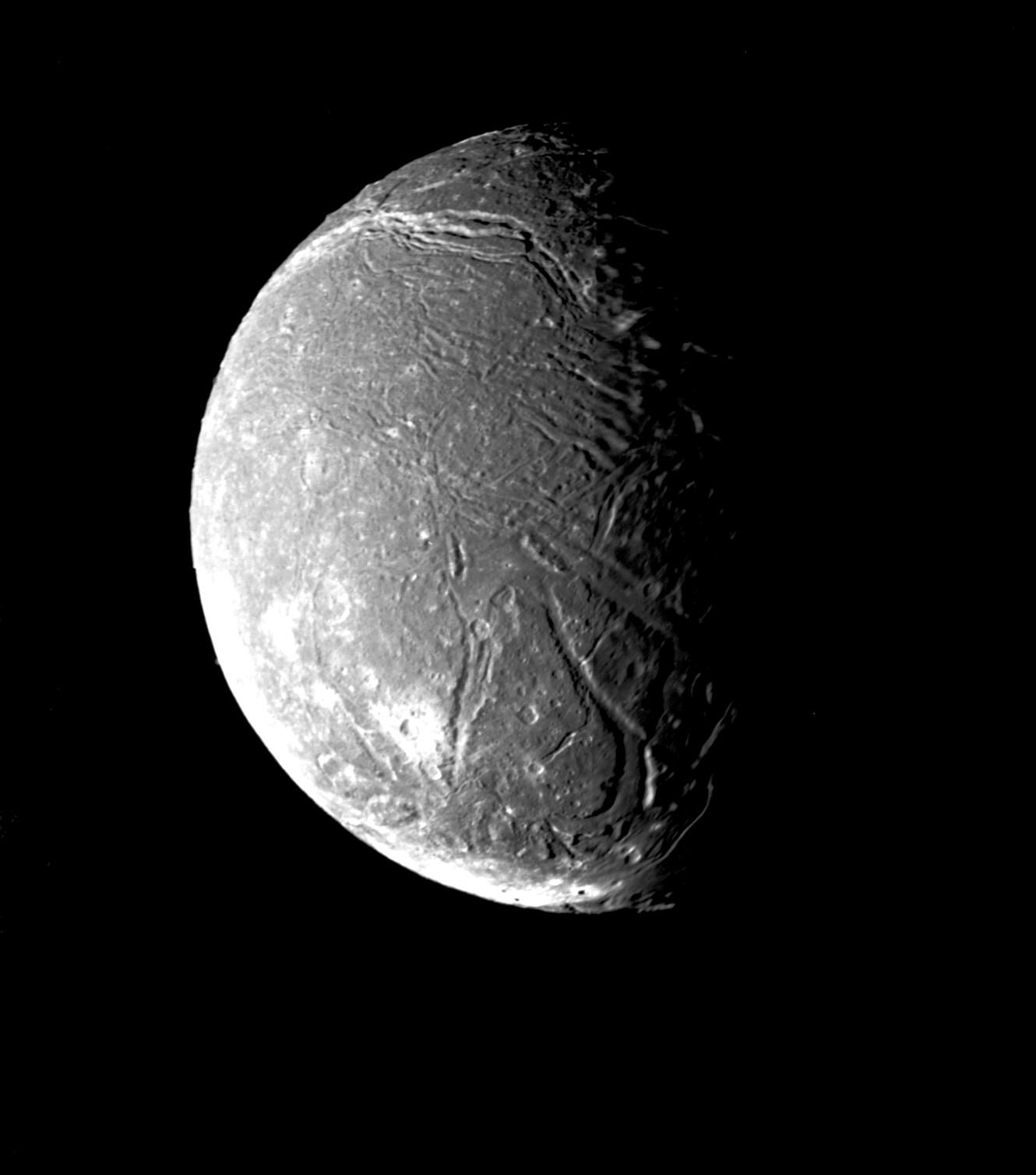Uranus
Uranus
Pale blue Uranus was the first planet discovered by telescope (Sir William Herschel in 1781). It rotates nearly on its side, with a 98 deg axial tilt, giving it the most extreme seasons in the Solar System.

Credit: (NASA/JPL/STScI)
Extreme winds surpass 500 miles per hour, and storms appear on seasonal timescales. 20 times further from the Sun than the Earth, it has more ices in its atmosphere than Jupiter or Saturn, and is sometimes called an "ice giant."
Moons

From left to right in order of decreasing distance from Uranus are Oberon, Titania, Umbriel, Ariel, and Miranda.
Credit: (NASA/JPL)

This mosaic of the four highest-resolution images of Ariel represents the most
detailed Voyager 2 picture of this satellite of Uranus.
Credit: (NASA/JPL)
Fun Facts
- 27 moons and counting
- faint rings
- seasons last 21 years
Missions
Voyager 2: 1986 flyby
